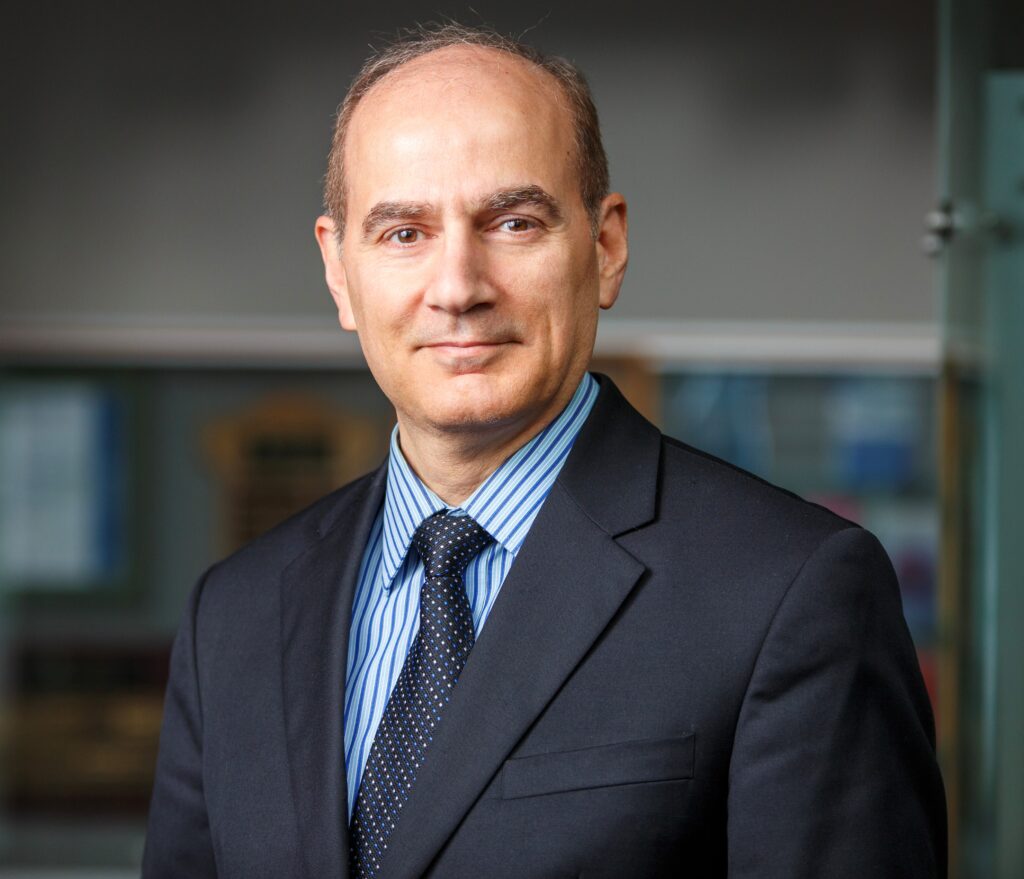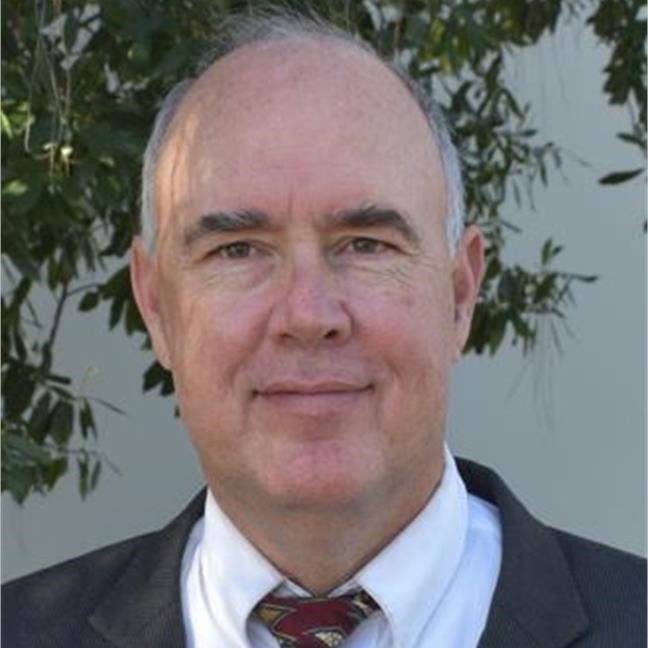Advanced Program 2023 IEEE Green Energy and Smart Systems Conference (IGESSC’23, Currently IEEE GESS)
Conference – November 13, 2023 (Monday)
9:00 AM – 5:00 PM (Virtual)
Track A
| Keynote Zoom Link: https://csulb.zoom.us/j/83746005816 Meeting ID: 837 4600 5816 | |||||
| 9:00 AM | Opening Remark | IGESSC 2023 (Currently IEEE GESS) Conference Chair, Dr. Mohammad Mozumdar | |||
| 9:05 AM | Keynote | Characterization of Connectivity in Asymmetric Networks with Application to Data Aggregation in Underwater Sensor Networks Dr. Amir Aghdam (Professor with the Department of Electrical and Computer Engineering, Concordia University, Montreal, QC, Canada, and an Associate Dean of Graduate Studies at Gina Cody School of Engineering and Computer Science) | |||
| 10:05 AM | Break | ||||
| Time | Paper # | Title and Authors | Session | Chair | |
| Power Systems Session Zoom Link: https://csulb.zoom.us/j/83245506279 Meeting ID: 832 4550 6279 | |||||
| 10:20 AM | 1570914460 | Optimal Topology Design of Remote Low Voltage AC Distribution Systems Ratha Taing and Xiaocong Li (Guangxi University, China) | Power Systems | Md Arifujjaman | |
| 10:45 AM | 1570917300 | A Proposed Decommission Framework for BESS by Southern California Edison (SCE) Md Arifujjaman (Southern California Edison, USA) | |||
| 11:10 AM | 1570960703 | Harmonics Analysis of a Photovoltaic Plant with a Reduced Number of Solar Central Inverters Loai Al-Adim (Tafila Technical University, Jordan); Mehrdad Aliasgari, Mohammad Mozumdar, and Saleh Al Jufout (California State University, Long Beach, USA) | |||
| 11:35 AM | 1570917304 | A Comprehensive Analysis of DC-DC Converters for EV Application by Southern California Edison (SCE) Md Arifujjaman (Southern California Edison, USA) | |||
| 12:00 PM | Lunch Break | ||||
| Power Systems Session Zoom Link: https://csulb.zoom.us/j/82860610920 Meeting ID: 828 6061 0920 | |||||
| 1:00 PM | 1570918495 | An Analytical Estimation of the Effect of Load Frequency Relief on Maximum PV Penetration Azazul Islam (Bangladesh University of Engineering and Technology, Bangladesh) | Power Systems | Suzanne Matthews | |
| 1:25 PM | 1570920913 | A Comparative Study of Programming Languages for a Real-Time Smart Grid Application Michael P. Rooney, Nakul Rao, Nicholas Liebers, Aaron St. Leger and Suzanne J Matthews (United States Military Academy, USA) | |||
| 1:50 PM | 1570924868 | Tackling Renewable Energy Intermittency in Hydrogen-Based Solar Energy System Control Using DRL Luiz Fernando Guedes dos Santos (Shell Global Solutions (US) Inc, USA); Tianxia Zhao (Shell International Exploration and Production Inc., USA); Xiao Fu and Iosif Pappas (Shell Global Solutions International B.V., USA); Cosar-Doga Demirhan (Shell International Exploration and Production Inc, USA); Christian Michler (Shell Global Solutions International B.V., USA); Hao Gao (Shell, USA); Meng Ling (Shell Global Solutions (US) Inc, USA) | |||
| 2:15 PM | 1570928572 | Analyzing RF Interference on Wireless BMS in High-Congestion Environments Joonha Park, Sang Je Lee, Yong Hwan Lee, and Nowon Park (Infineon Technologies, Korea (South)) | |||
| Power Systems Session Zoom Link: https://csulb.zoom.us/j/87038697087 Meeting ID: 870 3869 7087 | |||||
| 2:35 PM | 1570926404 | Feasibility study of a PV/biogas/grid system for Distributed Mirco-grid supply at Ashesi University Oluwamurewa Precious Odekunle, Timothy Asare, and Heather R Beem (Ashesi University, Ghana) | Kevin Kong | ||
| 3:00 PM | 1570927749 | Forecasting Wind and Solar Power Using Deep Learning-Based Techniques Vidushi Bajpai and Shantanu Joshi (USA); Hen-Geul Yeh (California State University Long Beach, USA) | |||
| Student Poster Competition Session Zoom Link: https://csulb.zoom.us/j/84791449737 Meeting ID: 847 9144 9737 | |||||
| 3:20 PM | 1570917613 | Thermal Modeling of Solid-State Drives in Cluster Systems Using Machine Learning Christopher J Pishaki (California State University Northridge, USA); Xunfei Jiang (California State University, Northridge, USA) | Student Poster Competition | Kevin Kong | |
| 3:30 PM | 1570925349 | Energy-efficient Geo-Information Visualization and User Interaction Bhumil Kukadiya (California State University, Northridge, USA); David J Castrejon (California State University Sacramento, USA); Connor Y Wang (University of California, Los Angeles, USA); Denys V Osmak (University of Texas at Austin, USA); Li Liu and Mario Giraldo (California State University, Northridge, USA) | |||
| Award Ceremony Zoom Link: https://csulb.zoom.us/j/88602886236 Meeting ID 886 0288 6236 | |||||
| 4:30 PM | Best Paper and Service Award Ceremony: | ||||
Conference – November 13, 2023 (Monday)
9:00 AM – 5:00 PM (Virtual)
Track B
| Keynote Zoom Link: https://csulb.zoom.us/j/83746005816 Meeting ID: 837 4600 5816 | |||||
| 9:00 AM | Opening Remark | ||||
| 9:05 AM | Keynote | Characterization of Connectivity in Asymmetric Networks with Application to Data Aggregation in Underwater Sensor Networks Dr. Amir Aghdam (Professor with the Department of Electrical and Computer Engineering, Concordia University, Montreal, QC, Canada, and an Associate Dean of Graduate Studies at Gina Cody School of Engineering and Computer Science) | |||
| 10:05 AM | Break | ||||
| Time | Paper # | Title and Authors | Session | Chair | |
| Smart Systems Session Zoom Link: https://csulb.zoom.us/j/89069611419 Meeting ID: 890 6961 1419 | |||||
| 10:20 AM | 1570917480 | Machine Vision-Based Human Intrusion Detection System Using Media Pipe Pose with IoT Alarm Samridhi Samridhi, Deekshita Verma and Vartica Jain (Indira Gandhi Delhi Technical University for Women, India); Deepak Kumar Sharma (Netaji Subhas Institute of Technology, University of Delhi, India); Koyal Datta Gupta (Maharaja Surajmal Institute of Technology, India) | Smart Systems | Kshitij Saxena | |
| 10:45 AM | 1570918904 | A Cloud-based Real-Time Traffic Monitoring System with Lidar-based Vehicle Detection Alexander Rose (California State University Northridge, USA); Icess Nisce (California State University, Northridge, USA); Alondra C Gonzalez, Matthew Davis and Brian Uribe (California State University Northridge, USA); Javier A Carranza (California State University, Northridge, USA); Jose Flores, Xudong Jia and Bingbing Li (California State University Northridge, USA); Xunfei Jiang (California State University, Northridge, USA) | |||
| 11:10 AM | 1570918912 | Performance Analysis of Virtual Machine Monitoring System Nikhil Vepuri (California State University Northridge, USA); Xunfei Jiang (California State University, Northridge, USA) | |||
| 11:35 AM | 1570919509 | A Systems Engineering Approach to DC Traction Power Systems Kshitij Saxena (KS Consulting, Canada) | |||
| 12:00 PM | Lunch Break | ||||
| Smart Systems Session Zoom Link: https://csulb.zoom.us/j/89976838656 Meeting ID: 899 7683 8656 | |||||
| 1:00 PM | 1570924796 | QoS Analysis of SDN-based Smart Grid Systems Abdullah Alshraa (Friedrich-Alexander-Universität, Germany); Lisa Maile and Kai-Steffen J. Hielscher (Friedrich-Alexander-Universität Erlangen-Nürnberg, Germany); Reinhard German (University of Erlangen, Germany) | Smart Systems | Abdullah Alshraa (Co-Chair Gauri Kale) | |
| 1:25 PM | 1570925434 | Preserve: Sensor-based Low-cost Emissions Management for Small and Medium Farms Sachin Mahesh (Castleknock College, Ireland); Mike Hibbett (Irish Manufacturing Research, Ireland) | |||
| 1:50 PM | 1570928540 | CMOS PPG Readout System with Integrated Temperature and Skin Pigmentation Correction Ricardo Bazurto and Chanel Lee (CSULB, USA); Tianmin Kong (CSULB & Claremont Graduate University, USA); Ava Hedayatipour (California State University Long Beach, USA) | |||
| 2:15 PM | 1570930466 | Principal Component Analysis on a Spring Mass Dynamic System Padmasri Venkatakrishnan (California State University, Long Beach); Hen-Geul Yeh (California State University Long Beach, USA) | |||
| Smart Systems Session Zoom Link: https://csulb.zoom.us/j/83794745214 Meeting ID: 837 9474 5214 | |||||
| 2:35 PM | 1570928542 | Implementation of Chua’s Transmitter and Receiver in 45nm CMOS Technology for Secure Communication Gauri Kale (CSULB, USA); Ava Hedayatipour (California State University Long Beach, USA) | Smart Systems | Ava Hedayatipour (Co-Chair Gauri Kale) | |
| 3:00 PM | 1570929377 | Experimental Evidence on Latency in a Fleet of Controllable Water Heaters Eve Tsybina and Viswadeep Lebakula (ORNL, USA); Justin Hill (Georgia Power, USA); Jeff Munk (National Renewable Energy Laboratory, USA); Helia Zandi (Oak Ridge National Laboratory, USA) | |||
| 3:25 PM | 1570929747 | Enhancing Object Tracking Performance through Deep Learning-Based Low-Light Aerial Image Enhancement Trong-An Bui (National Taiwan University of Science and Technology, Taiwan) | |||
| 3:50 PM | 1570929924 | Analysis of Standards for Electricity Advanced Metering Infrastructure in the Housing Sector Eunbi Ko (Telecommunications Technology Association, Korea (South)); GukSik Jeong (TTA & Telecommunications Technology Association, Korea (South)) | |||
| Award Ceremony Zoom Link: https://csulb.zoom.us/j/88602886236 Meeting ID: 886 0288 6236 | |||||
| 4:30 PM | Best Paper and Service Award Ceremony: | ||||
Workshop – November 14, 2023 (Tuesday)
9:00 AM – 2:20 PM (Virtual)
| Time | Workshop # | Presentation Title | Session | Session Chair |
| Session Zoom Link: https://csulb.zoom.us/j/7923303746 Meeting ID: 792 330 3746 | ||||
| 9:00 AM | 1 | Exploring the Current Challenges and Opportunities in EVSEs from Industrial and Research Perspectives: A Brief on Equipment Hardware, Managing Platform and EV planning Dr. Boyang Hu | Industrial Challenges | Chair: Fred Chung Co-Chair: Hen-Geul (Henry) Yeh |
| 9:40 AM | 2 | The Evolution of Vehicle E/E Architecture and the Rise of Software-Defined Vehicle Dr. Shugang Jiang | ||
| 10:20 AM | Break | |||
| Session Zoom Link: https://csulb.zoom.us/j/7923303746 Meeting ID: 792 330 3746 | ||||
| 10:40 AM | 3 | MOEV AI™ – Artificial Intelligence Software for Management of Transit Electric Bus Fleets Dr. Rajit Gadh | Artificial Intelligence | Chair: Fred Chung Co-Chair: Hen-Geul (Henry) Yeh |
| 11:20 AM | 4 | AI-Enabled Proactive Resilience Enhancement of Electric Infrastructure Against Wildfire Dr. Hamid Nazaripouya | ||
| 12:00 PM | Lunch Break | |||
| Session Zoom Link: https://csulb.zoom.us/j/7923303746 Meeting ID: 792 330 3746 | ||||
| 1:00 PM | 5 | Towards Carbon-Free Electricity: A Comprehensive Flow-Based Framework for Power Grid Carbon Accounting and Decarbonization Dr. Wenbo Shi | Power Grid / Controls | Chair: Fred Chung Co-Chair: Hen-Geul (Henry) Yeh |
| 1:40 PM | 6 | Adventures in Rapid Controls Prototyping Dr. James Burns | ||
| 2:20 PM | Workshop Close | |||
Opening Remark
Characterization of Connectivity in Asymmetric Networks with Application to Data Aggregation in Underwater Sensor Networks
Time: Nov 13, 2023 09:00 AM Pacific Time (US and Canada)
Join Zoom Meeting
https://csulb.zoom.us/j/83746005816
Meeting ID: 837 4600 5816
Keynote Speaker: Dr. Amir Aghdam
Abstract:
Connectivity of an asymmetric network represented by a weighted digraph is investigated in this work. A novel distributed algorithm based on the subspace consensus approach is introduced to compute the generalized algebraic connectivity as connectivity measure of asymmetric networks from the viewpoint of each node. After properly transforming the Laplacian matrix of the network, two sequences of one-dimensional and two-dimensional subspaces are generated iteratively by each node in a distributed manner such that one of them converges to the desired subspace spanned by the eigenvector(s) associated with the eigenvalue(s) representing the network’s generalized algebraic connectivity. The convergence analysis of the distributed algorithm is subsequently provided under some assumptions. The efficiency of the developed algorithm in computing the network connectivity is demonstrated by simulations.

Short Bio:
Amir G. Aghdam (Fellow, IEEE; Fellow, Engineering Institute of Canada) received a Ph.D. in electrical and computer engineering from the University of Toronto, Toronto, ON, Canada, in 2000.
He is currently a Professor with the Department of Electrical and Computer Engineering, Concordia University, Montreal, QC, Canada, and an Associate Dean of Graduate Studies at Gina Cody School of Engineering and Computer Science. He was a Visiting Scholar with Harvard University, Cambridge, MA, Canada, in the fall of 2015 and was an Associate with the Harvard John A. Paulson School of Engineering and Applied Sciences from September 2015 to December 2016.
Dr. Aghdam is a member of Professional Engineers Ontario, Chair of the Conference Editorial Board of the IEEE Control Systems Society, and the Editor-in-Chief of the IEEE SYSTEMS JOURNAL. He served as an Associate Editor for several IEEE journals, including IEEE TRANSACTIONS ON CONTROL SYSTEMS TECHNOLOGY and IEEE ACCESS. He has been a member of the Technical Program Committee of several conferences, including the IEEE Conference on Systems, Man and Cybernetics (IEEE SMC) and the IEEE Multiconference on Systems and Control (IEEE MSC). He was a member of the Review Committee for the Italian Research and University Evaluation Agency (ANVUR) from 2012-2013 and a member of the Natural Sciences and Engineering Research Council of Canada (NSERC) ECE Evaluation Group from 2014-2016. He received the 2009 IEEE MGA Achievement Award and the 2020 IEEE Canada J.M. Ham Outstanding Engineering Educator Award. He was the 2014-2015 President of IEEE Canada and Director (Region 7), IEEE, Inc., and was also a member of the IEEE Awards Board for this period. He was a member of the IEEE Medal of Honor Committee and IEEE MGA Awards and Recognition Committee. He is currently the Chair of the IEEE Medals Council and a distinguished lecturer of the IEEE. His research interests include distributed control of interconnected systems, sensor networks and optimization.
Workshop/Webinar
MOEV AI™ – Artificial Intelligence Software for Management of Transit Electric Bus Fleets
Speaker: Dr. Rajit Gadh
This talk introduces innovative software solutions that leverage Artificial Intelligence (AI) for optimizing electric vehicle (EV) fleet operations and charging. The advanced AI-based Machine Learning technology from MOEV Inc. called MOEV AI™ focuses on three key aspects: transit dispatch operations, electric vehicle charging management, and efficient Yard Management. By harnessing real-time data from telematics, dispatch, and external sources like weather and traffic conditions, the software accurately predicts EV mileage, allowing for optimal bus selection throughout the day. Furthermore, it strategically coordinates charging in fleet yards, reducing range anxiety and managing charging operations to minimize the electric bill. Attendees will learn about the transformative potential of AI in the electric transit fleet industry, witnessing how this technology helps remove operational challenges, minimizes costs, and promotes sustainability in EV fleets.
Short Bio:

Dr. Rajit Gadh is an accomplished professional, renowned as the Co-Founder of MOEV Inc. (http://www.moevinc.com), and holds a prestigious position as a Professor of Engineering at UCLA. With an impressive academic background, Dr. Gadh has previously taught at esteemed institutions such as UC Berkeley and the University of Wisconsin-Madison. He has also contributed to groundbreaking research as a visiting researcher at Stanford University.
Throughout his illustrious career, Dr. Gadh has made significant contributions to the field of engineering, resulting in over 250 technical publications and several patents to his name. His expertise and dedication have earned him recognition as a Fellow of the American Society of Mechanical Engineers, solidifying his status as a leader in his field.
In acknowledgment of his outstanding work, Dr. Gadh has been the recipient of numerous prestigious awards, including the National Science Foundation (NSF) CAREER award, NSF Research Initiation Award, and NSF-Lucent Industry Ecology Fellow Award. Further adding to his accolades are honors like the Society of Automotive Engineers Ralph R. Teetor Educational Award, ASME Kodak Best Technical Paper Award, AT&T Industrial Ecology Fellow Award, and Engineering Education Foundation Research Initiation Award.
Dr. Gadh’s academic journey has been nothing short of remarkable. He holds a Doctorate degree from Carnegie Mellon University, a Masters from Cornell University, and a Bachelor’s degree from IIT Kanpur, all in engineering. This impressive educational background reflects his passion for learning and his relentless pursuit of knowledge and innovation.
AI-Enabled Proactive Resilience Enhancement of Electric Infrastructure Against Wildfire
Speaker: Dr. Hamid Nazaripouya
Electric infrastructures in recent years have suffered extensive damage and disruptions due to large-scale fires. One notable example is the Thomas Fire, which resulted in widespread customer service disruptions and outages affecting over 85,000 customers. While utility companies have made significant efforts to enhance power grid resilience against wildfires, the emphasis has primarily been on passive techniques such as undergrounding power lines, reinforcing poles, and implementing system hardening methods. However, these passive approaches come with a substantial cost.
This presentation introduces a new approach called active grid resilience, which incorporates smart control measures into the operational procedures of the system. By actively managing resources and assets, this new concept aims to effectively respond to crisis situations in real-time. The presentation will delve into the development of wildfire impact models on electric infrastructure and explore self-healing solutions and mitigation strategies. By embracing this approach, the electric grid can better withstand the challenges posed by wildfires and ensure more resilient and reliable operations.
Short Bio:
Dr. Nazaripouya is an Assistant Professor at Oklahoma State University and an Assistant Adjunct Professor at the University of California, Riverside. He obtained his Ph.D. degree from the University of California, Los Angeles (UCLA). He received an M.S. degree in power systems from Louisiana State University in 2013 and an M.S. degree in power electronics from the Sharif University of Technology in 2010. His research on the integration and control of distributed renewable energy resources and battery storage systems has resulted in multiple publications and patents in the field. He currently serves as the lead Primary Investigator (PI) for research projects valued at over a million dollars. Dr. Nazaripouya has been honored with several awards, including the IEEE SFV Section Rookie of the Year Award, IEEE IAS and PES Presentation Awards, and the University of California Dissertation-Year Fellowship Award.
Towards Carbon-Free Electricity: A Comprehensive Flow-Based Framework for Power Grid Carbon Accounting and Decarbonization
Speaker: Dr. Wenbo Shi
This talk presents a comprehensive framework for advancing research and policy development related to decarbonization in electric power systems. Distinguished from existing pool-based emissions models, this framework introduces a novel flow-based emissions model that incorporates the underlying physical power grid and power flows. It thus enables precise carbon accounting at both temporal and spatial scales, facilitating informed decision-making towards achieving the ultimate objective of grid decarbonization. Specifically, this framework presents a flow-based accounting methodology, introduces the carbon-aware optimal power flow (C-OPF) technique as the theoretical foundation for decarbonization decision-making, and explores the potential design of carbon-electricity markets and carbon pricing mechanisms to incentivize decentralized decarbonization actions.
Short Bio:

Wenbo is the founder and CEO of Singularity Energy. Before founding Singularity, Wenbo was a postdoctoral researcher at Harvard University researching Smart Grid technology and management, where he published more than 20 peer-reviewed papers which received over 1,000 citations. Two of his journal papers were ranked among the most popular articles on IEEE. He received his PhD from UCLA in 2015.
The Evolution of Vehicle E/E Architecture and the Rise of Software-Defined Vehicle
Speaker: Dr. Shugang Jiang
We are currently seeing great transformation in the automotive industry characterized by technical and commercial trends involving autonomous driving, connectivity, electrification, and shared service. Among the plethora of new concepts, Software-Defined Vehicle (SDV) is right now a buzzword gaining a lot of attention. This concept emphasizes the central role of software in realizing vehicle functions, enriching features, improving performance, adapting to environment, customizing user experience, and meeting changing customer needs. With this concept, a vehicle is no longer a product that remains largely static, but one that will dynamically evolve over its whole life cycle.
The advancement in vehicle E/E architecture and various key technologies are the technical basis for the emergence of SDV. This presentation talks about the evolution of vehicle E/E architecture and how its advancement enables the SDV concept. Latest progress in vehicle E/E architecture and various technologies that form the basis of SDV, including High-Performance Computing (HPC) platform, vehicle Operating System (OS), Over-the-Air (OTA) Update, communication, connectivity, cybersecurity, and cloud service, etc. are discussed.
Short Bio
Dr. Shugang Jiang is a dynamic and accomplished automotive industry professional with over 20 years of experience, mainly in automotive electronics. Currently he is the Director of E/E Systems and Software Council at Vinfast, focusing on product and technical strategies, and the design and development of vehicle E/E architecture and system solutions. His experience includes vehicle E/E architecture; control systems; powertrain, chassis, and body electronics; IVI and ADAS; model-based development; and test equipment, etc. He obtained his bachelor’s degree in automotive engineering, and Ph.D. degree in power machinery and engineering from Tsinghua University, master’s degree in electrical engineering from The Ohio State University, and MBA from Missouri State University. He has about 30 publications and presentations.
Exploring the Current Challenges and Opportunities in EVSEs from Industrial and Research Perspectives: A Brief on Equipment Hardware, Managing Platform and EV planning
Speaker: Dr. Boyang Hu
This presentation comprises two main phases. Part 1 (50%) focuses on the implementation anddemonstration of a substantial network of EV charging stations, addressing various aspects such as policy, hardware, software, and charging/billing platforms, all from an industrial perspective. Part 2 (50%) presents our recent research of dynamic pricing of charging stations, particularlyin the context of addressing critical load demand. We established a simulation environment thatincludes multiple charging stations, EVs, and a hospital to represent the critical load. Withinthis simulated setting, we account for the interactions between charging stations, EV chargingbehaviors, and the unpredictable nature of critical load demand. To address this challenge, weemploy the Graph Reinforcement Learning (GRL) technique, which is formulated as a graph-based reinforcement learning task. Our outcomes demonstrate the effectiveness of the GRLmethod in optimizing station profits relatively while simultaneously ensuring the stability ofthe critical load., tackling similar issues in larger geographic regions with an expanded numberof stations will be conducted in our future endeavors, which will also be extended to thepotential of dynamic pricing within the realm of V2G services.
Short Bio:
Dr. Boyang Hu is currently serves as a Research Fellow (Equivalent to Lecturer) in the University of New South Wales (UNSW) Australia. He is also a co-founder of a China-based EV charging company. With eight years of experience in the EV industrial sector, he has actively participated in various EVSE R&D projects, introducing innovative concepts to the real-world market. His contributions have played a significant role in driving the sale of over 20,000 EVSEs. He obtained all his degrees (Bachelor’s, M.Phil., and Ph.D.) from the University of Sydney (USYD), Australia, and completed his Post-Doc at the University of California, Los Angeles (UCLA), U.S. His research interests encompass EV charging (V1G, Grid to Vehicle) and discharging (V2G, Vehicle to Grid) technologies, along with PV and Battery Energy Storage System (BESS) integrations in microgrids for future energy networks. The majority of his research publications and contributions are centered around renewable generation (wind and PV), EV planning strategies, and demand management within distribution power networks.
Adventures in Rapid Controls Prototyping
Speaker: Burn James
Abstract: Rapid Controls Prototyping is a backbone technology supporting emerging electric vehicle markets. The author will outline experiences gained over two decades developing EVs and share lessons learned and costs, risks and benefits accrued. The talk will end with an overview of coding and implementation examples from a current project.
Short Bio:

The author has worked as a tenured professor in academia, as a Senior Engineer in the defense industry and as a co-founder and advisor to several successful EV companies over 35 years.





